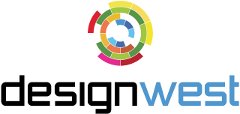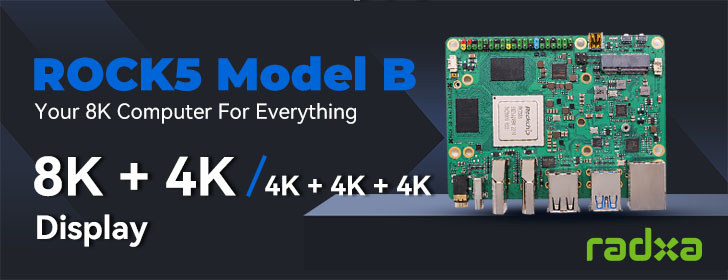 Design West 2013, previously known as the Embedded Systems Confertence, will take place later this month, on 23-25 April to be exact, at San Jose McEnery Convention Center in San Jose, California, US. The event will be divided into 22 tracks dealing with software development, hardware design, operating systems, security and more:
Design West 2013, previously known as the Embedded Systems Confertence, will take place later this month, on 23-25 April to be exact, at San Jose McEnery Convention Center in San Jose, California, US. The event will be divided into 22 tracks dealing with software development, hardware design, operating systems, security and more:
- Android Certificate Program – Two-day hands-on embedded android workshop.
- Black Hat Summit – The Black Hat Embedded Security Summit will provide electronics professionals with essential information and tools, as well as a forum for the discussion and evaluation of the latest solutions for securing their embedded systems. Training courses will focus on topics such as Network Security, Incident Response, Web Application Security, and Exploit Development.
- Connectivity and Networking – The Connectivity and Networking track educates design engineers on wired and wireless communications, spanning need-to-know topics from essentials of USB device development to antenna and RF system design.
- Debugging and Test – This track features a mix of lectures focusing on useful insights on troubleshooting real world embedded software, and tips and tricks with highly practical takeaways that embedded systems designers can apply immediately.
- Embedded Android – This track covers the tradeoffs of Android versus Linux in a real-world case study, teaches engineers how to streamline Android implementation on embedded systems, and provides information on how to apply USB technology and provide connectivity to various configurations of Android platforms.
- Hardware: Design, I/O, and Interfacing – This track examines how to ameliorate the challenges associated with design element such as the interface between hardware and firmware; synchronizing I/O, integrating embedded vision and motion control, and leveraging existing sensor drivers.
- Internet of Things – This track covers some of the specific challenges and opportunities for embedded designers, including today’s fragmented sensor and device market, the move from IPv4 to IPv6, and the return to resource-constrained embedded systems.
- Linux Kernel and Operating Systems – The Linux Kernel and Operating Systems Track focuses on the kernel itself, and the operating system and programs running above it. Sessions cover best practices for engineers to leverage the use of open source software within embedded systems while avoiding common pitfalls, plus a session showing how Linux, though not a real time kernel, is likely good enough for your application.
- Low-Power Design – The Low-Power Design track covers the latest techniques to conserve power at the system; architectural and component level as well as the advantages and trade-offs of different power optimization techniques.
- Processors and Programmable Devices – The Processors and Programmable Devices track focuses on embedded systems that feature the use of processors (MPUs, MCUs, DSPs) and/or programmable devices (FPGAs, Programmable SoCs).
- Programming – The Programming track focuses on embedded system programming languages, tools and techniques. Sessions provide practical tips and tricks and actionable information that developers can apply immediately to their code.
- Prototyping – The Prototyping track focuses on the science and art of rapidly creating embedded systems for proof of concepts, demonstrations and iterative product developments.
- Real Time Operating Systems – This track focuses on delivering real-time performance with the assistance of a real-time scheduler and related tools and techniques. Sessions include practical information on the design of real-time embedded systems that will be timely and predictable, design options for achieving real time without an RTOS, and the application of RTOS in safety critical applications.
- Safety, Security and Hacking Embedded Systems – The Safety, Security, and Hacking Embedded Systems covers the latest techniques for designing and managing more secure systems. Sessions cover a mixture of hacking history, security knowledge, techniques for building more secure embedded system, and coping with the special case of Android.
- Software Architecture and Design – Using practical, real-world advice from experts, this track will guide you through everything from requirements and specification development techniques, to optimizing your multicore and user-interface design. Agile design techniques will also be introduced.
- Software Development – The Software Development Track will guide you toward a more disciplined approach to software development to improve performance, while emphasizing agility. A special session on common traps and pitfalls when developing real-time software will underscore the importance of such approaches.
- Systems Engineering – The Systems Engineering Track’s objective is to improve analytical skills, impart an enhanced understanding of the impact of your engineering decisions on others on the design team, and the impact of other decisions on you. Engineers will learn the benefits of looking at the big picture, in addition to focusing only on the detail.
- Hello World! – Track engineers share their embedded design experiences and provide information that will help you bring your ideas to life more quickly and successfully.
- Lessons and Lessons Learned – Engineers share their successes and failures along with some practical tips, tricks, and how-tos to jump start your next big embedded systems project.
- Connected Devices – Learn about the whacky wonderful future of mobility and learn about some real world examples of products with embedded systems that are already talking to the cloud.
- Tech Fundamentals – This 3-day series consists of 18 45-minute sessions designed specifically for engineers who are new to embedded or experienced embedded engineers who want an introduction to topics outside of their core expertise. These practical sessions delivered in a tutorial format cover topics ranging from Embedded 101 to Analog for Digital Designers to Why the Programming Language C matters.
- Hands-on Speed Training – Attendees can get some drive time on the latest development boards, hardware, and software tools and face time with expert engineer-trainers. Developments boards include Arduino, Beaglebone, Raspberry Pi… software tools include Microchip MPLAB X, TI WEBENCH Power Designer, etc..
To select the sessions, the best way is to use the schedule builder available on UBM website.
If you plan to only access the expositions, attend a few of the many vendor-sponsored sessions, and listen to keynotes, the pass (Expo Only Pass) is free and you only need to register. For details about the other pass see table below.
| All Access Pass |
Expo Plus Pass |
Expo Only Pass | Black Hat Summit |
|
|---|---|---|---|---|
| Advanced | Feb 16 – Apr 18 | $1,999 | $199 | Free | $1099 |
| Onsite | April 19 – 25 | $2,299 | $199 | Free | $1199 |
| Conference Sessions April 21 – April 25 |
 |
|||
| Black Hat Conference Sessions April 23 – April 24 |
 |
 |
||
| Monday Workshops |  |
|||
| Monday Lunch |  |
|||
| Vendor Sessions April 22 – April 25 |
 |
 |
 |
 |
| Keynotes April 23 – April 25 |
 |
 |
 |
 |
| Expo April 22 – April 25 Sketch to Shenzhen, Fundamentals, and Hands-On Training Lab Included |
 |
 |
 |
 |
| Parties & Giveaways April 22 – April 25 |
 |
 |
 |
 |
| DESIGN West Conference Proceedings |  |
 |
||
| Black Hat Summit Proceedings |  |
 |
||
| Android Certification April 22 – April 23 |
 |
|||
| IEEE Certification April 22 – April 25 |
 |
|||
| Expo Plus Extras
– 3 Class Passes
|
 |
Further details are available on Design West Official Website.

Jean-Luc started CNX Software in 2010 as a part-time endeavor, before quitting his job as a software engineering manager, and starting to write daily news, and reviews full time later in 2011.
Support CNX Software! Donate via cryptocurrencies, become a Patron on Patreon, or purchase goods on Amazon or Aliexpress



